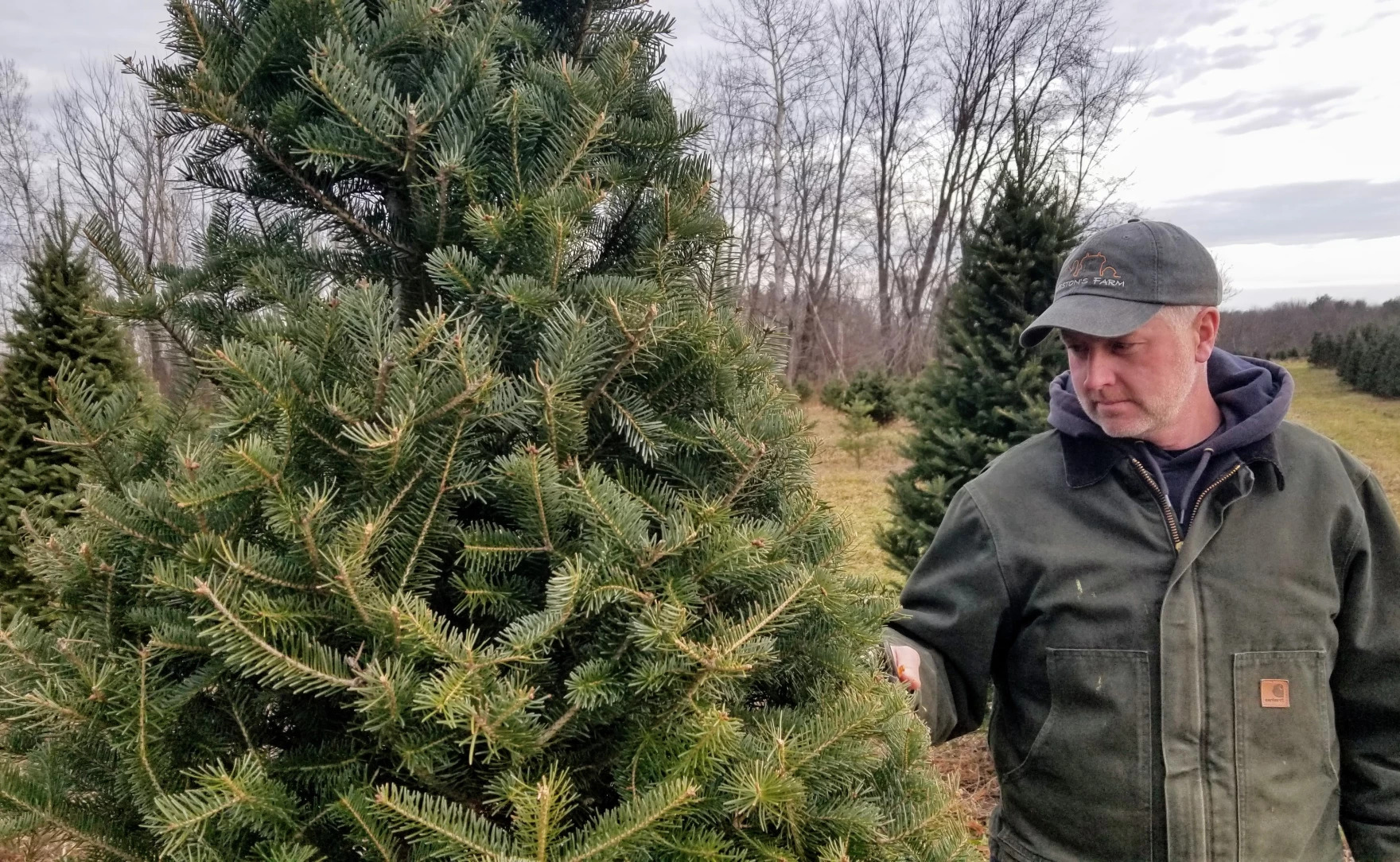For Christmases yet to come, climate change threatens Maine’s beloved evergreens

John Weston of Maine looks at one of his trees that was damaged in a winter flood. He’s tried to reshape the tree with corrective pruning, but he says he won’t be able to sell it. (Jennifer Mitchell/ Maine Public)
Since the 1800’s in Maine, the Christmas tree has been an essential point of light for many in the darkest month of the year. But scientists say that some of the state’s best-loved conifers are under threat, with extreme weather making it difficult for them to grow.
When Ephraim Weston moved from Massachusetts to the Province of Maine, Christmas trees weren’t even a “thing” yet.
“We took ownership of the property in 1799. Started out as a farm for family. Dealt in various commodities throughout the generations, moved into livestock trading and a dairy farm,” says John Weston, a descendant of Ephraim who now operates this 1,000-acre farm on the banks of the Saco River, which for more than two centuries has adapted to the times.
During the Great Depression and war time, it provided vegetables for the canned goods market. When the dairy industry collapsed, the family switched to corn and other crops. But the winters in Maine were long, so Weston says growing Christmas trees — specifically Maine’s native balsam fir — seemed like a good bet for a few reasons.
“The balsams are the ones that have kind of the nice shape to them, and the standard smell. Everybody wants the smell of a nice balsam tree. The ground doesn’t need to be too spectacular,” he says. “They don’t have to have a ton of pH, you can plant them up against a woods line like we’ve done here, meaning they don’t have to have direct sunlight all day long.”
But Weston says he’s already having to cope with climate impacts his family hadn’t anticipated 30 years ago.
“See the curve in this one? Can you see how that’s kind of curved? That’s flood damage,” he says, pointing to a tree.
For the rest of this story, including the audio version, please visit MainePublic.org.
